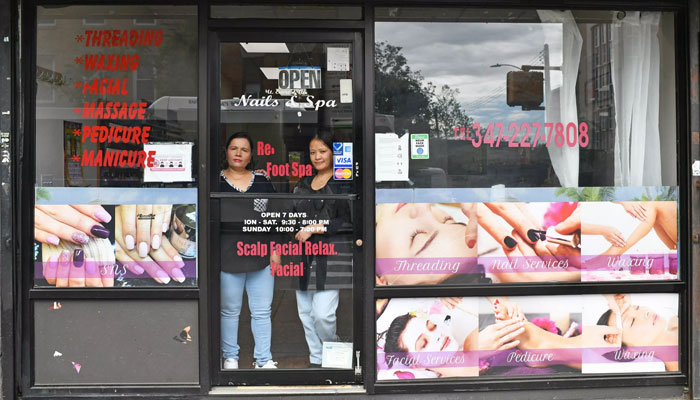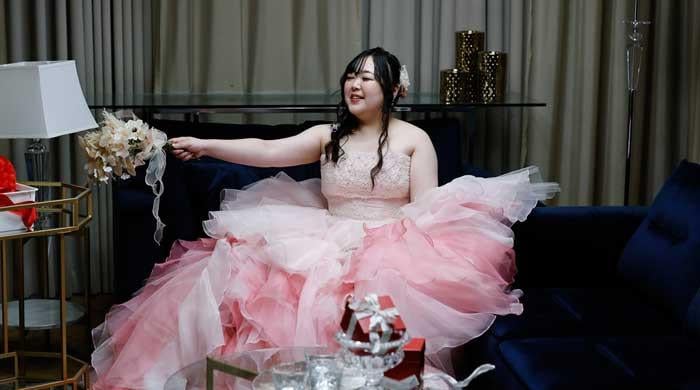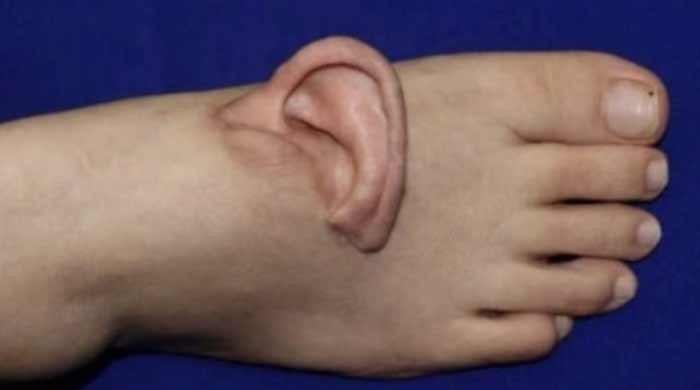Migrant nail salon workers in New York strive for better future
The salon workers are demanding enforcement of the minimum hourly wage of 15 dollars, overtime payments, better access to protective gloves and masks, meal breaks and social protections
May 18, 2022

NEW YORK: They are the artisans of affordable beauty on almost every New York City street corner. But migrant nail salon workers endure low wages, poor conditions and health risks -- a reality they hope a new law will change.
"The first thought of coming to the US, it was a dream in itself," Maya Bhusal Basnet, who arrived from Nepal in 2009, says near multicolored rows of nail polish.
"But working in a nail salon for all these years, I have faced a lot of issues that I would not share with my kids," the 46-year-old tells AFP.
Last month, around a hundred nail salon workers protested in Manhattan, singing and dancing below towering skyscrapers.
They are demanding enforcement of the minimum hourly wage of 15 dollars, overtime payments, better access to protective gloves and masks, meal breaks and social protections.
The campaign, led by a coalition of activist groups supported by Democratic lawmakers, calls for the creation of an organization of employers and employees who would work together on minimum standards across New York state.
The state is estimated to have more than 5,000 salons and 17,000 employees, the vast majority of migrants from Asia and Latin America.
Authorities took up their plight after the New York Times published an investigation into exploitative practices in the industry.
Since 2016, the New York state government has identified more than 1,800 violations of labor laws at nail salons and ordered owners to pay $2 million in outstanding wages and damages.
The introduction of the $15 minimum wage in the 2016-17 budget and the abolition of tip credit have improved working conditions for many in the industry, according to New York´s labor department.
But for Basnet there is still a lot more that needs to be done.
She says not all salon owners pay the minimum wage and some that do have reduced hours.
"How can I survive here working 26 or 27 hours a week or when I´m sent home and not paid, because there are no customers?" she said through a translator.
- Health problems -
A recent study by Cornell University Workers´ Institute found that "unpredictable schedules" and "wage theft," when workers are not paid the money they are owed, are still prevalent.
"A lot of workers are experiencing economic insecurity, struggling to just pay the bills by the end of the month," Zoe West, one of the researchers of the study, told AFP.
"A lot of workers often don´t have access to social protections. Most of them don´t have health insurance from their jobs," she added.
According to official statistics, the hourly wage in the sector was $14.31 in the New York metropolitan area in 2021, below the legal minimum.
Employers´ groups did not return requests for comment from AFP.
On top of money worries, there are health concerns.
Basnet says she has often experienced skin irritation, persistent coughs and breathing difficulties as a result of the chemicals, such as acetone or acrylic, that she handles.
Activists also cite risks for pregnant women and their unborn babies, even if scientific proof is not conclusive.
New nail parlors have been obliged to have adequate ventilation since 2016, but existing salons were given five years to update, a timeframe that New York state extended to October this year because of "the economic hardships" caused by the pandemic.
For West, one of the problems lies in the way the sector is structured, with many very small companies engaged in fierce competition that drag down costs of manicures and wages.
Deepa Shrish Singgali, a former employee, now boss of a salon in Queens, is faced with a problem.
"In the long term, I hope to raise the prices but now due to less customers because of the pandemic I´m not able to," she told AFP, noting that her competitors have recently lowered their prices.











